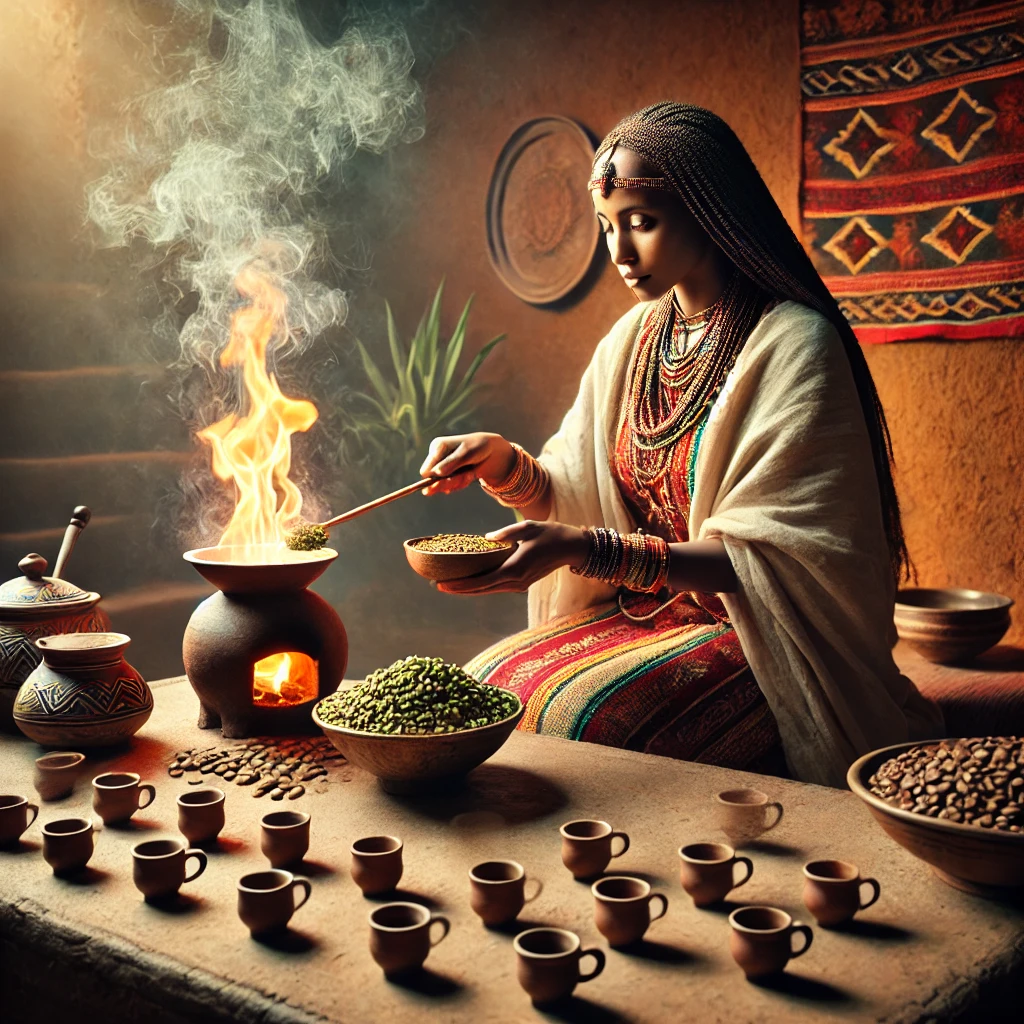
Ethiopia, often celebrated as the birthplace of coffee, boasts a rich and intricate coffee culture that remains deeply embedded in its daily life. The traditional Ethiopian coffee ceremony, known as Bunna, is a time-honored ritual that transcends mere beverage preparation, serving as a cornerstone of social and cultural interaction.
The Traditional Coffee Ceremony
The ceremony is typically conducted by the woman of the household and unfolds through several meticulous stages:
- Roasting: Green coffee beans are washed and then roasted over an open flame using a flat iron pan. The hostess continuously stirs the beans to ensure an even roast, often producing a dark, glossy finish. The aromatic smoke from the roasting process is customarily wafted towards guests, inviting them to savor the rich fragrance. EIGHT50COFFEE.COM
- Grinding: Once roasted to perfection, the beans are ground using a traditional wooden mortar and pestle called a mukecha, resulting in a fine powder ready for brewing. EN.WIKIPEDIA.ORG
- Brewing: The ground coffee is then transferred to a jebena—a distinctive clay coffee pot with a spherical base and a long, narrow neck. Water is added, and the mixture is brought to a boil over a heat source. The unique design of the jebena allows the coffee grounds to settle naturally, eliminating the need for a filter. EATER.COM
- Serving: The brewed coffee is carefully poured from the jebena into small, handleless cups, often from a height to aerate the brew and enhance its flavor. The ceremony traditionally involves three rounds of serving: Abol (the first round), Tona (the second), and Bereka (the third), each progressively milder as water is added to the jebena between servings. EN.WIKIPEDIA.ORG
This elaborate ceremony is more than a method of brewing coffee; it is a communal experience that fosters social bonds and reflects the hospitality inherent in Ethiopian culture. Being invited to a coffee ceremony is considered a mark of friendship and respect. JONESBROTHERSCOFFEE.COM
Modern Coffee Practices
In contemporary Ethiopia, especially in urban centers like Addis Ababa, the coffee landscape has evolved to include a blend of traditional and modern practices. Alongside the customary bunna bets (coffee houses), there has been a rise in specialty coffee shops offering espresso-based beverages, catering to both locals and tourists seeking diverse coffee experiences. BOLEAIRPORT.COM
Despite the proliferation of modern cafes, the traditional coffee ceremony remains a cherished practice, symbolizing Ethiopia’s enduring connection to its coffee heritage. Whether in a rural village or a bustling city, the essence of Ethiopian coffee culture continues to thrive, embodying a unique blend of history, ritual, and social connection.
For a visual demonstration of the Ethiopian coffee ceremony, you might find this video insightful:



